#os lusíadas
Text
Last night I finished reading Os Lusíadas or the Lusiads, the national epic of Portugal written by Luís Vaz de Camões. I was inspired to pick it up after seeing Lunie’s beautiful June 10th fanart. I took my sweet time reading each canto, and now I’d like to share some of my favorite passages. : )
I’ll preface this by saying that I was lucky to get my hands on the Penguin UK 2007 edition, which opens with Camões’s short biography. It’s almost impossible to learn about his life without being touched by his love and devotion to his country, his disappointment in its vices, the many shipwrecks he suffered, his two year long limbo in Mozambique and so on. Reading the Lusiads in the lachrymose atmosphere of his biography definitely enhanced my experience. :,) The publishers knew what they were doing, haha.
Os Lusíadas means the sons of Lusus. In mythology, Lusus was the son of Bacchus and the founder of Lusitania, whose inhabitants were the forefathers of the modern Portuguese. So, if Lusus is the father of the Portuguese, doesn’t that make Bacchus the grandfather of the Portuguese?
Throughout the epic, Bacchus is passionately pursuing the destruction of his grandchildren the Portuguese, who brave the seas and oceans in pursuit of India. Bacchus resorts to many tricks to impede their voyages.
He appears as the prophet in the dreams of an Imam. He disguises himself as a human to turn the Muslim locals against the Portuguese. He creates a fake altar to trick the Portuguese into thinking that Christians lived among Muslims.

He even went before Neptune and the nymphs and gave them the biggest sob story about how the Portuguese are trespassing on his domain and Neptune should seek revenge.

Bacchus exudes the biggest MEAN GIRL energy. When I imagine him chasing and plotting against the Portuguese, I can’t help but think of Regina George’s:

Anyway, this isn’t to say that I don’t find his dedication impressive. I admire his dedication! It takes A LOT of energy to orchestrate that many obstacles. Although he could have spent this time nurturing his relationship with his grandchildren. He just resents the Portuguese for venturing eastward and fears that, in their pursuit, the Portuguese will become gods.
Despite Camões glorifying Vasco da Gama and his discovery of a route to India, he laments the loss of his people’s heroism and virtues, which were replaced by the greed and prosperity of the empire. :(

Camões’s parting lesson is that even the most fruitful endeavour can be equally rotting, and a triumph can reward you as much as it can rob you of your virtues.
This next part never fails to break my heart. He just poured himself and his life in every line:

António Vieira’s quote makes me just as sad:

On a happier note, I laughed myself silly when I saw how Camões wrote about Italy and more specifically VENICE 🤧, the old maritime trade competitor.
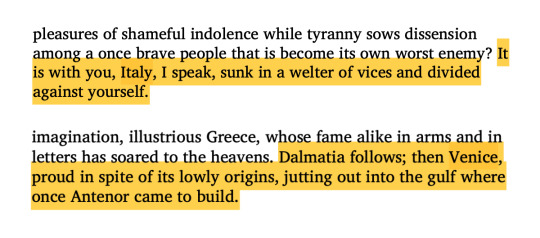
See how catty he is. I love it so much! Maybe Camões was bitter about Venice sacking Constantinople and trading with the Ottomans. Oh well ¯\_(ツ)_/¯
I also loved how smitten Venus was with the Portuguese. She was so flattered that the Portuguese worshipped her that she moved mountains to support their cause. <3 She’s the ultimate girl boss, and can we talk about her chariot being pulled by doves and swans:

It was a bit difficult to understand certain historical references, because I went in not knowing enough about Portugal’s pre-modern history. But reading the Lusiads motivated me to brush up on my knowledge. :)
These are only a few of the passages which I adored and highlighted on my kindle.

I will definitely reread the Lusiads in the near future. And make myself sad over Camões once more.
8 notes
·
View notes
Photo
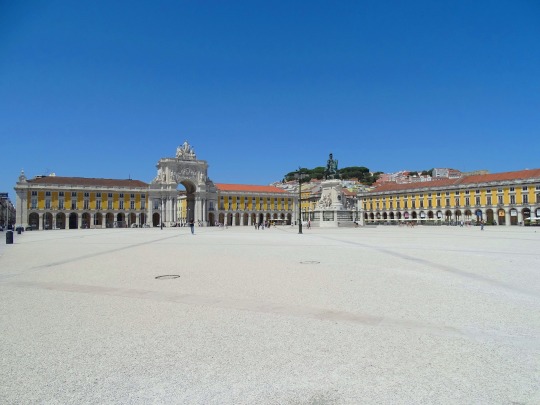



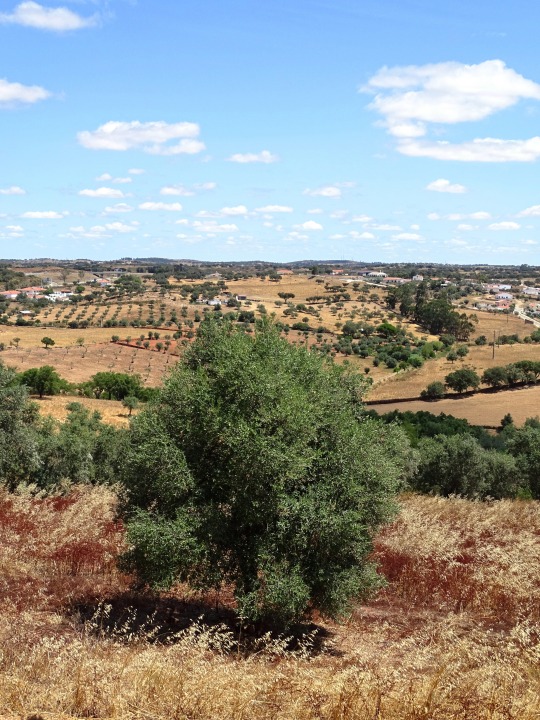

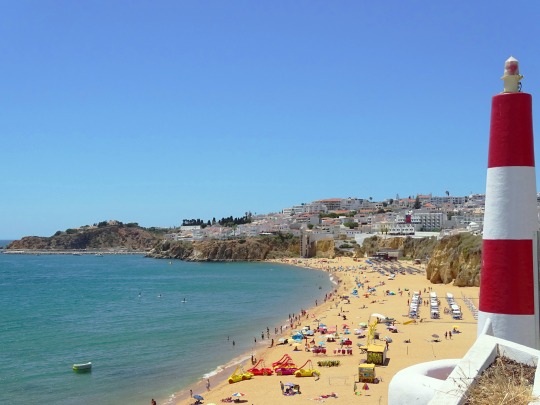



Portugal Day
Portugal Day is the official national holiday of Portugal, and it is observed on June 10 each year. In Portugal, this day is usually called ‘Dia de Portugal, de Camões e das Comunidades Portuguesas,’ which translates to ‘Day of Portugal, Camões, and the Portuguese Communities.’
The day is intended to remember the death of Luís de Camões, who is recognized as the country’s greatest national icon. He is most known for his poem, which narrates the story of Portuguese explorations in the 15th century and has since been accepted as a national poem in Portugal. However, because his birth date is uncertain, his death date, June 10, 1580, is commemorated as Portugal’s National Day.
History of Portugal Day
As much as he came to represent Portuguese nationalism, Camões died during the succession crisis that led to Philip II of Spain taking Portugal’s throne in 1580. However, the kingdom recovered its independence on December 1, 1640, when the Spanish were expelled during the Portuguese Restoration War and John of Bragança was crowned King John IV of Portugal.
Camões’ poem became such a powerful symbol of Portuguese heritage that it was made a national anthem and was honored by every elected government. Camões was even used as a symbol for the Portuguese people during the authoritarian regime of the 20th century.
Portugal Day has been observed every year save 1974 since its inauguration in 1944 by Prime Minister António de Oliveira Salazar. The Carnation Revolution, a military coup that deposed the autocratic Estado Novo dictatorship, halted the celebrations that year.
After 1974, the celebrations were expanded to include the Comunidades Portuguesas, Portuguese emigrants, and their descendants residing in communities all over the world.
The official celebrations were held in the town of Elvas for the second time since 1997, this time on July 4, 2013. As a reminder that it is also a day for the Portuguese community around the world, in 2016 the formal festivities were split between Lisbon and Paris for the first time.
Although Portugal Day is primarily honored in Portugal as a national holiday, it is also recognized as such in some other nations. They include Canada, the United States, and the United Kingdom.
Portugal Day timeline
15th Century The National Poem
Luís de Camões composes an epic poem titled “Os Lusíadas,” translated as “The Lusiads” that becomes a symbol of Portuguese pride.
1580 A Double Tragedy
Luís de Camões dies and the Portuguese throne is claimed by Philip II of Spain.
1640 The Restoration War
The Spanish are expelled and John of Bragança is crowned King John IV of Portugal.
1974 The Carnation Revolution
Portugal Day celebrations are suspended for one year due to countrywide protests.
Portugal Day FAQs
What is Freedom Day Portugal?
Freedom Day, known in Portuguese as Dia da Liberdade, is a national holiday in Portugal observed every April 25. It marks the “Carnation Revolution” that took place in 1974, celebrating the end of the war and dictatorship in the colonies.
What do Portugal people celebrate?
Every community has its church processions, dance, music, fireworks, and wine to celebrate her Patron Saint and Saint’s Day.
What is Santa called in Portugal?
Santa Claus is called ‘Pai Natal’ by children in Portugal. They believe he brings presents on Christmas Eve and places them under the Christmas tree.
Portugal Day Activities
Visit Portugal
Explore Portuguese content
Try a Portuguese cuisine
Travel to one of the world's oldest civilizations and join the people in celebrating Portugal Day. The region is home to some of the most remarkable antiquities on the earth, including the world's oldest bookstore and the longest bridge in Europe.
Learn more about the legend, Luís de Camões, and other explorers who brought fame and prosperity to the country. According to legend, Camões lost one eye in combat, authored the famous 'Os Lusiadas' while traveling, and survived a shipwreck. His feats are part of a long line of famous Portuguese men.
Portuguese cuisines are an amazing treat, as the country is known for being one of the world's largest consumers of seafood. On Portugal Day, you can add some heat to your diet by eating a hot bowl of Portuguese fish soup.
5 Mind-blowing Facts About Portugal
The abolishment of slavery
The Portuguese language is very popular
The country had over 50 colonies
It is home to Europe’s longest bridge
It is the oldest European country
Portugal was the first colonial country to abolish slavery in 1761.
Portuguese is the world's sixth most spoken language and the official language of nine countries.
Portugal's colonial empire encompassed what are now 53 independent countries.
With its six lanes and a cable-stayed structure across the Tagus River north of Lisbon, Portugal's Vasco da Gama Bridge is Europe's longest.
Portugal was a kingdom for approximately 800 years, from 1139 until 1910, making it Europe's oldest nation.
Why We Love Portugal Day
It’s a national Portuguese symbol
It is a perfect way to preserve Portuguese heritage
It is always a big party
Every Portuguese takes pride in celebrating Portugal Day by paying tribute to Camões because his poem chronicles the country's rich cultural history. The poem, which has inspired countless great deeds throughout Portuguese history, concentrates mostly on the 15th-century Portuguese discoveries, which brought fame and prosperity to the country. It is regarded as one of the best and most important works in Portuguese literature.
Every year on Portugal Day, children are told stories about Camões and how his achievements inspired numerous changes in the country. This contributes to the preservation of cultural heritage and assures that the tradition will be passed down through generations.
On Portugal Day, several festivities and parties are held in Portuguese cities. Portugal Day events are also held in Portuguese communities around the world to commemorate the unique day.
Source
#Praça do Comércio#Lisbon#Lisboa#Albufeira#district of Faro#Algarve#Atlantic Ocean#Camões Monument by Victor Bastos#D. Maria II National Theatre#Rossio#Ourique#Belém Tower#Luís de Camões#São Jorge Castle#Dia de Portugal de Camões e das Comunidades Portuguesas#national holiday#Os Lusíadas#10 June 1580#death#died#anniversary#Portugese history#summer 2021#tourist attraction#cityscape#architecture#landscape#seascape#Southern Europe#original photography
1 note
·
View note
Text
Os Lusíadas: edição comemorativa dos 450 anos
Os Lusíadas: edição comemorativa dos 450 anos #joseruy #bandasdesenhadas
Por José Ruy.
O mestre José Ruy (1939-2022) abandonou-nos recentemente, a 23 de novembro. Ultimamente, os seus trabalhos vinham a ser publicados pela editora Âncora, sendo a mais recente publicação a 8.ª edição de Os Lusíadas, a propósito da edição comemorativa dos 450 anos da primeira publicação da obra original de Luís Vaz de Camões.
Recorde-se que esta adaptação de José Ruy para banda…

View On WordPress
#Âncora#Camões#José Ruy#Luís de Camões#Luís Vaz de Camões#Luiz de Camões#Luiz Vaz de Camões#Os Lusíadas#Portugal
1 note
·
View note
Text
LIVROS CLÁSSICOS DA LITERATURA QUE VÃO MUDAR A SUA FORMA DE VER O MUNDO
LIVROS CLÁSSICOS DA LITERATURA QUE VÃO MUDAR A SUA FORMA DE VER O MUNDO
O ser humano é um animal que interpreta tudo aquilo que vê e interage. Mesmo que de maneira inconsciente, a mente humana está sempre tentando responder para si a pergunta “o que está acontecendo?”. Essa resposta é muito influenciada pelo imaginário.
A música que alguém escuta, as obras que admira, os filmes que assiste e, principalmente, os livros que se lê moldam a sua mente. Para dar mais…
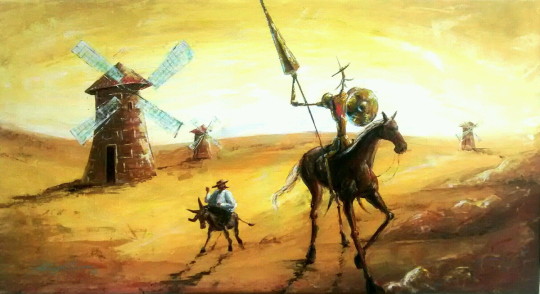
View On WordPress
#1984#a divina comédia#A Inocência do Padre Brown#as crônicas de nárnia#crime e castigo#dom quixote#Guerra e paz#literatura#livros clássicos#O Senhor dos Anéis#os lusíadas
0 notes
Text
to the dear person that asked if theres a hc to the fangs on my first port post, there is indeed [rubs hands together menacingly]
essentially, i think of him as at least part sea monster-creature-thing. possibly retired and old and broke and sad, but still an adamastor wannabe at heart
#i blame os lusíadas for this#daamnnn you camões for mixing mythology with portuguese history#AND at the same time making it an archaic vasco da gama fanfiction#aph portugal#rambles
16 notes
·
View notes
Text
Os 100 livros para ler antes de morrer
Os livros lidos estão riscados!
A arte da guerra (Sun Tzu)
Hamlet (william Shakespeare)
O banquete (Platão)
A divina comédia - Inferno (são 3 livros) (Dante Alighieri)
O processo de Kafka (Kafka)
O morro dos ventos uivantes (Emilly Bronte)
O pequeno príncipe (Antoine de Saint – Exupéry)
Orgulho e preconceito (Jane Austen)
O princípe (Nicolau Maquiavel)
A Odisseia (Homero)
O vermelho e o negro (Stendhal)
O velho e o mar (Ernest Hemingwai)
Homem invisível (Ralph Ellison)
Dom Quixote (Miguel de Cervantes)
Moby Dick (Herman Melville)
1984 (George Orwell)
Crime e castigo (Fyodor M. Dostoyevsky)
A Ilíada (Homero)
Madame Bovary (Gustave Flaubert)
A montanha mágica (Thomas Mann)
Cem anos de solidão (Gabriel Garcia Marquez)
Otelo (William Shakespeare)
Ulysses (James Joyce)
Guerra e Paz (Leo Tolstoy)
As viagens de Gulliver (Jonathan Swift)
O nome da rosa (Umberto Eco)
Alice no País das maravilhas (Lewis Carroll)
Vinte mil léguas submarinas (Julio Verne)
Leviatã (Thomas Hobbes)
Fahrenheit 451 (Ray Bradbury)
Armas, germes e aço: os destinos das sociedades humanas (Jared Diamond)
O diário de Anne Frank (Anne Frank)
O conto da aia (Margaret Atwood)
O iluminado (Stephen King)
O sol é para todos (Harper Lee)
A revolução dos bichos (George Orwell)
A flecha de Deus (Chinua Achebe)
Utopia (Thomas More)
Gargantua (François Rabelais)
Pantagruel (François Rabelais)
Ensaio sobre a Cegueira (José Saramago)
Édipo Rei (Sófocles)
Os miseráveis (Victor Hugo)
Os Lusíadas (Luis de Camões)
Os três mosquiteiros (Alexandre Dumas)
Decamerão (Giovanni Boccaccio)
As mil e uma noites (Sem autor)
Amor no tempo do cólera (Gabriel Garcia Marquez)
A epopeia de Gilgamesh (Sem autor)
O livro do Desassossego (Fernando Pessoa)
Livro de jó (Bíblia Sagrada)
O retrato de Dorian Gray (Oscar Wilde)
Ismael: um romance da condição humana (Daniel Quinn)
Medeia (Euripides)
Robinson Crusoé (Daniel Defoe)
Contos de Andersen (Hans Christian Andersen)
Conde de Monte Cristo (Alexandre Dumas)
O mundo de Sofia (Jostein Gaarder)
A condição humana (Hannah Arendt)
Laranja mecânica (Anthony Burgess)
O elogio da loucura (Erasmo de Roterdã)
A sangue frio (Truman Capote)
Ardill 22 (Joseph Heller)
Adeus às armas (Ernest Hemingway)
Admirável mundo novo (Aldous Huxley)
Todos os Contos (Edgar Allan Poe)
A morte de Ivan Ilyuich (Leo Tolstoy)
Mahabharata (sem autor)
Contos de Canterbury (Geoffrey Chaucer)
Os irmãos Karamazov (Fyodor M Dostoyevsky)
Tom Jones (Henry Fielding)
A consciência de Zeno (Italo Svero)
Amada (Toni Morrison)
Os filhos da meia-noite (Salman Rushdie)
O tambor (Gunter Grass)
O idiota (Fyodor M Dostoyevsky)
As metamorfoses (Ovídio)
O som da montanha (Yasunari Kawabata)
Ensaios (Michel de Montaigne)
Senhor das moscas (William Golding)
As vinhas da Ira (John Steinbeck)
O grande Gatsby (F. Scott Fitzgerald)
O jogo da amarelinha (Julio Cortázar)
O estrangeiro (Albert Camus)
Memórias de Adriano (Marguerite Yourcenar)
O lobo da Estepe (Herman Hesse)
O apanhador no campo de Centeio (J. D. Salinger)
Rumo o farol (Virginia Woolf)
O castelo (Franz Kafka)
Anna Karenina (Leo Tolstoy)
O som e a fúria (William Faulkner)
O homem sem qualidades (Robert Musil)
As aventuras de Huckleberry Finn (Mark Twain)
Almas mortas (Nikolai Gogol)
Pedro Paramo (Juan Rulfo)
Folhas de relva (Walt Whitman)
Viagem ao fim da noite (Louis Ferdinand Celine)
Lolita (Vladimir Nabokov)
Eneida (Virgílio)
Em busca do tempo perdido (7 livros) (Marcel Proust)
18 notes
·
View notes
Text



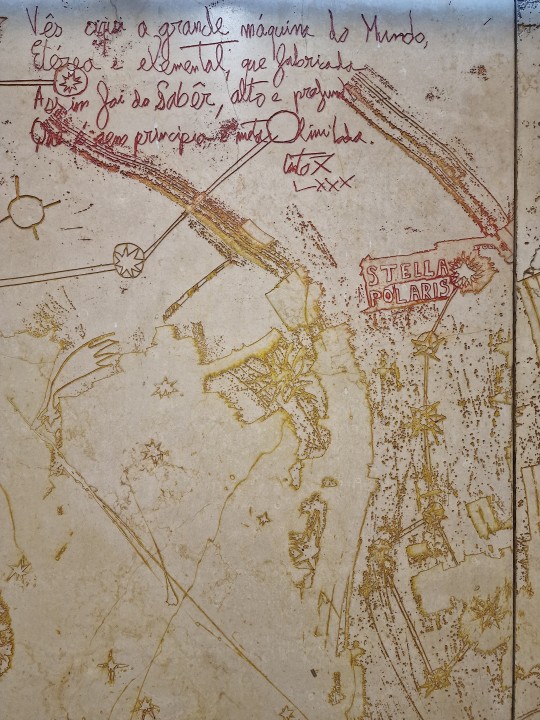


Os Lusíadas
Luís de Camões
Lisboa - Metro Entre Campos
fotos: cjmn
7 notes
·
View notes
Photo
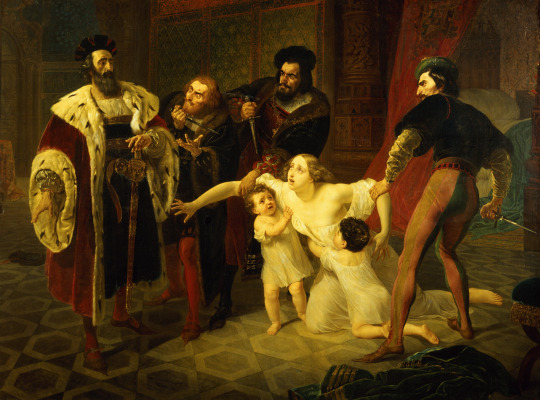
Karl Pavlovich Bryullov (Russian, 1799-1852)
The Death of Inês de Castro, Morganatic Wife of Don Pedro, Infant of Portugal, 1834
The Mikhailovsky Palace
The painting is based on an event from Portuguese history described in Luís de Cam es epic poem Os Lusíadas. Inês de Castro was the morganatic wife of Pedro, son of King Afonso IV who was killed by the courtiers lvaro Gonçalves, Pêro Coelho and Lopes Pacheco with the agreement of Alfonso IV. Karl Brullov is known to have painted the picture in the space of seventeen days in Milan in 1834. It was then exhibited at the Pinacoteca di Brera that same year.
#Karl Pavlovich Bryullov#ines des castro#Inês de Castro#world history#european history#art#fine art#russia#russian#iberia#portugal#europe#europa#european#european art#western civilization#blonde#woman
52 notes
·
View notes
Text

Azulejo panel by Jorge Colaço at Buçaco Palace, depicting the tournament at Smithfield
"This, from his charger not dismounting flies;
that groaneth falling with his falling steed;
this hath his snow-white mail with vermeil dyed;
that, with his helm-plume flogs his courser's side."
(The Lusiads, Canto VI, verse 64)
The Twelve of England (Os Doze de Inglaterra) is a Portuguese chivalric legend of 15th-century origin, famously related by the poet Luís de Camões in his 1572 Os Lusíadas (Canto VI).
#medieval#england#portugal#azulejos#art#buçaco palace#knights#jousting tournament#tournament#combat#duelling#duel#middle ages#history#english#portuguese#chivalry#chivalric romance#armour#knight#european#chivalric#luís de camões#europe
140 notes
·
View notes
Note
Hii! For the ask game : 11
And I also wanted to ask smth : what are the few poems and/or poets that are literal classics in your native language? Like the ones everybody knows and should know and that you study in school? (I'll figure it out how to understand them later, don't worry about it ahah)
hiii ♡⸜(˶˃ ᵕ ˂˶)⸝♡
11. favourite native writer/poet?
Answered here but somehow I forgot Gil Vicente, i had to read two of his plays in school, and they were so, but so funny. Should reread them soon, actually.
Now, some Portguese poetry literal classics:
🪶Fernando Pessoa and some of his heteronyms, which is kind of an insane ride, that man created over 70 personas and each of them had an entire life story, and different writing style and motifs. It was really interesting, but also low key insane, he wasn't kidding when he said "I don't know how many souls i have" "Não sei quantas almas tenho"
his more important heteronyms are Alberto Caeiro, Álvaro de Campos and Ricardo Reis, tho i usually prefer Fernando Pessoa's own writing
🪶Florbela Espanca, absolute goddess "Ser Poeta", is amazing
🪶Luís de Camões, obviously, he wrote "Os Lusíadas" ("The Lusiads"), which is basically the portuguese version of the Iliad lol
Some others that I read in school but aren't that mandatory (and i want to talk about them bc they have some bangers) are:
Eugénio de Andrade, can't think of any poem rn, sorry
Alexandre O’Neill "Gaivota" is amazing (and Amália Rodriges sang it)
Manuel Alegre, "Letra para um hino" - also super relevant bc 25 of april is almost here, and this year is the 50 year celebration of the Carnation Revolution (in which they fought the Estado Novo), and i think this poem is inspired by it
António Gedeão, i love his poem "Pedra Filosofal"
sorry for the rant on poems, apparently I learned more in Portuguese class then i remembered LOL
hope I gave you some decent recs, thank you sm for the ask 💗💗
2 notes
·
View notes
Text

Oiii, booklovers!
Esse post pode n significar mto pra vcs, mas é um "remake" do meu primeiro post sobre livros na rede vizinha - desativei esse ano, mas parece q faz séculos -, ent é meio nostálgico fazer isso aqui.
🪻| Têm ótimas amizades
• Extraordinário
Apesar de todos os contratempos, a amizade do Auggie com o Jack Will é muito fofa e sempre me lembra da minha melhor amiga e eu no fundamental kkkkk é exatamente nossa vibe
• A Saga Sherlock Holmes
Leitor ou não, todo mundo conhece essa amizade icônica. Um detetive excêntrico e um médico incrível dividindo o 221B na Baker Street, oq poderia dar errado?
• A Seleção
Mesmo que eu não seja muito fã da trilogia, tenho que admitir que a amizade entre a America e a Marlee é muito linda. Sério, elas são incríveis juntas.
• A Mulher com a Estrela Azul
Ainda que tenha odiado o final, a amizade completamente improvável de Ella e Sadie tocou meu coração de verdade.
🪻| São muito fofos
• Pollyanna Moça
Aaaaaaa eu amo esse casal! Esse livro aqui, caros amigos, foi a causa dos meus surtos no início da pré-adolescência kkkkkkk
• Princesa Adormecida
Apesar de que conversar com estranhos na internet não seja lá muito seguro, o Phill é uma gracinha!!!
• Amor e Gelato
Um dos meus livrinhos de conforto, Amor e Gelato é um dos únicos friends to lovers q não me deu raiva - eu sou mais enemies / fake dating msm.
🪻| Me fizeram chorar
• A Menina que Roubava Livros
Eu amo A Menina que Roubava Livros de coração, sei até o início do primeiro capítulo decorado de tantas vezes que li, é um dos meus livrinhos de conforto, maaaaas aquele final? Gnt, isso aqui é pagar pra ter depressão 🤡
• Rilla de Ingleside
Odeio esse livro com todas as minhas forças :)
Depois q meu personagem preferido morreu, não tinha nem pq terminar, eu só tava lendo por ele msm.
• Minha Vida Fora de Série 2
Eu chorei e não de tristeza, foi de raiva mesmo kkkkkkk Deu tudo tão errado nesse livro que mds do céu!
• Sem Coração
Chorar literalmente não chorei, mas nossa, toda vez q eu penso nesse livro os olhos chegam a esquentar. Fiquei mal por semanas - e ainda não tô mto bem não kkkkk
Esse aqui é o famoso "me destruiu, 5★ e favoritado".
🪻| Têm mocinhos perfeitos
• Scarlet (Segundo vol das Crônicas Lunares)
Gnt, gnt, gntttttttt-----
Nossa, no momento em que eu li a sinopse, sabia q teria um crush nele. Meu pano pra ele é azul com glitter.
• Confissões de uma Terapeuta
Além de engraçado e tudo mais, o Léo é um fofo <3
Por falar nisso, tô até com vontade de reler :)
• Minha Vida Fora de Série
Já cansaram de me ver falando de MVFS, né? Pois então, lá venho eu com Rodrigo Lidman Rochette de novo! Esse menino foi meu primeiro crush literário, Paula Pimenta como sempre fazendo história.
🪻| Terminei na força do ódio
• Tartarugas até lá Embaixo
Foi tão ruim que não lembro de quase nada do que aconteceu, só que a menina bebia álcool em gel ou algo do tipo.
• Os Lusíadas
Luís de Camões que me perdoe, mas que livrinho triste viu? Precisei até de uma edição comentada pra entender, passei mais de duas semanas ouvindo o audiobook pra escola ;-;
• Shine
Top livros que me estressei por ter gastado meu precioso dinheirinho com eles. A história em si lembra o Diário de uma Garota nada Popular numa versão K-Pop cheia de palavrões e ainda por cima tem sequência não traduzida.
🪻| Estão na wishlist
• A Pequena Livraria dos Sonhos
Tá na minha listinha a tanto tempo que tá até juntando poeira online 🤡
Imagino q o livro seja incrível e estou doida pra ler algo da Jenny Colgan, amo as introduções dela nas amostras.
• Um Passo de Cada Vez
Tem bandas, vestibular e romance, fala se isso não é a minha cara? Quero mto ler ele 🥲
• Manual para Damas em Busca de um Marido (Rico)
Eu amei o título logo de cara, imagina a cara do povo vendo gente com esse livro na rua kkkkkkk
Sei que romance de época não faz muito meu estilo, mas quando tem uma linguagem mais "atual", é melhor :)
• Melhor do que nos Filmes
Além de livros, amo filmes - especialmente dos anos 90 / início dos anos 2000 -, e com o enemies to lovers, esse promete.
Só espero que não seja um daqueles com hype vazio.
💜| E aí, gostaram do post?
Bjs e boas leituras <33
#livros#leitura#livrosderomance#books & libraries#leitores#books and literature#books and reading#books
5 notes
·
View notes
Text
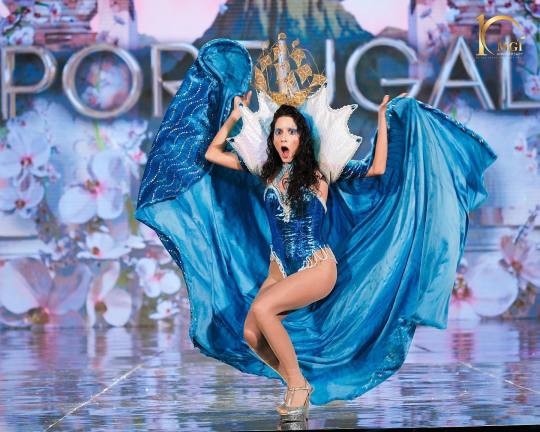
Miss Grand Portugal 2022 National Costume
My national costume is a representation of the Tagus nymphs, called "Tágides" by André Resende and popularized by our greatest poet and father of the Portuguese language: Luís Vaz de Camões. Famous for being the Portuguese Shakespeare. He wrote the national epic "Os Lusíadas" back in the sixteenth century when these mythological creatures would inspire him to write down the biggest achievements of the Portuguese people.
The epopee describes in verse Vasco da Gama's trip to India across the oceans. It was the first time such trip happened and the Portuguese navigators where pioneers to the discoveries.
Camões asks on behalf of the Portuguese people protection of the nymphs and asks for strength to overcome the dangers they might face alone in the ocean (induction of the church in saying that the ocean is where the world ended and monstrous beings existed there) and with delight to the nymphs they will spread the great deed with reference to the muses.
The traditional Portuguese ship named Caravela Portuguesa (part of my national costume) is still today a symbol for this period in Portuguese history.
The epic poem talks about the Lusitanian history regarding the conquests of African colonies and some in Asia, showing the great power of the Portuguese who valued their great Kings and when great warriors died in battles.
The "Tágides" live in the Tagus river by Lisbon, our beautiful capital, and 450 years later they're protecting me in this journey to Miss Grand International 2022 held in Indonesia, therefore I am bringing you a bit of my country - Portugal - with the reference to them :)
#miss grand international 2022#miss grand international#she put a lot of effort into the description so I figured I'd share it#idk if this is the relationship between portugal and indonesia you want to be emphasizing though...#national costume contest#miss grand portugal#pageant
21 notes
·
View notes
Note
Have you read Os Lusíadas (The Lusiads), by Luis de Camões? I don't know if reading it in English is more understandable, but I read it in Portuguese (the book's original language) and I must say that I wanted to evaporate from the earth while reading this beauty (5 out of every 10 words I didn't understand what it meant)
What's it about
8 notes
·
View notes
Text
[...]
Rua da União onde todas as tardes passava a preta das bananas
Com o xale vistoso de pano da Costa
E o vendedor de roletes de cana
O de amendoim
que se chamava midubim e não era torrado era cozido
Me lembro de todos os pregões:
Ovos frescos e baratos
Dez ovos por uma pataca
Foi há muito tempo...
A vida não me chegava pelos jornais nem pelos livros
Vinha da boca do povo na língua errada do povo
Língua certa do povo
Porque ele é que fala gostoso o português do Brasil
Ao passo que nós
o que fazemos
é macaquear
a sintaxe lusíada
A vida com uma porção de coisas que eu não entendia bem
Terras que não sabia onde ficavam
Recife...
Rua da União...
A casa de meu avô...
Nunca pensei que ela acabasse!
Tudo lá parecia impregnado de eternidade
Recife...
Meu avô morto.
Recife morto, Recife bom, Recife brasileiro
como a casa de meu avô.
Evocação do Recife, Manuel Bandeira
#citou#manuel bandeira#literatura#literatura brasileira#poesia brasileira#recife#pernambuco#poesias#poemas#quotes#citações
7 notes
·
View notes
Note
eu tô indo, né? podia tá melhor? sim. mas tb não tamo no fundo do poço ainda rotina muito pesada, né? imagino q não deve estar sendo simples pra vc, mas desejo tudo de bom♡
me manda o podcast do seu prof, eu vou adorar conferir.
sobre a minha oficina... então, vou falar, mas ainda não entendi cem por cento, e o que eu entendi é mais ou menos assim...
como a oficina foca nessa ideia mítica da colonização e da identidade de Portugal, os textos tentam ler a história lusófona de maneira a entender o que o país foi, principalmente na época do estado novo (na ditadura do salazar) e tb, de certa forma, hoje em dia.
entende-se pt como uma nação traumatizada, com muitas perdas e vergonhas internacionais. a maioria das colônias se tornaram independentes e pt parou de lucrar em cima delas instantaneamente, enquanto as outras nações conseguiram lucro e conseguem até hj (como a França e a própria Inglaterra).
por isso existe um certo delírio de grandeza, cria-se uma imagem mitológica sobre o período das navegações e da colonização, vendendo esses processos como coisas que deram muito bem, quando a realidade é o contrário. percebe-se pt como uma nação pequena que tenta se provar muito grande a todo custo.
isso é interessante quando a gnt para pra pensar no quão violenta foi a colonização portuguesa e o quão teimosa foi tb. eles foram os últimos a abolir a escravidão, por exemplo. e fica mais interessante ainda quando a gnt percebe que a maior parte das produções literárias lusófonas são sobre a própria nação, sobre construir um ego — a obra mais conhecida e estudada é "os Lusíadas".
e agora uma coisa que ficou só nas minhas reflexões (mas eu espero que seja um assunto tb) é ver todo esse contexto hoje em dia na maneira com que a maioria dos portugueses tratam e enxergam os brasileiros, ainda mais com a onda de br na sociedade deles agr.
a mentalidade de um país colônia é muito diferente de um país colonizador, e com pt o buraco é mais em baixo kkkkkk enfimmmmm
hoje é domingo, você conseguiu descansar pelo menos um pouco da rotina pesada, meu bem? eu espero que sim!!!!
Ninaaa 🥲🥲🥲 eu li isso aqui umas duas vezes antes de fazer algum sentido na minha cabeça, mas eu consegui. parece tão difícil? eu entendo você agora. eu achava difícil relacionar psicanálise com processos mentais/comportamento inconscientes, mas isso na literatura está em outro nível 🫡
Essa sua explicação me fez lembrar muito do ego ideal que é ligado a um nascisismo primário Kkk o ego ideal é o herdeiro do narcisismo primário e tem muito haver com um sentimento de humilhação, sabe? Algo que está sempre a espera do máximo de si, além de nutrir ideias virtualmente nunca alcançáveis. É como se protugual estivesse constantemente voltar ao que era, mesmo agora que não é mais. "Eu sou assim" presente do indicativo. Isso que você disse sobre como eles tratam os brasileiros, mesmo hoje e com tudo que a nação deles causou, faz total sentido, porque o ego ideal é uma das partes que influencia o superego (aspectos morais, sentimento de culpa e afins). Como eles vão ter consciência sobre a realidade se estão, ainda, incoscientemente, na posição de um país colonizador?
Eu adorei escutar sobre isso!!!!!! se quando você tiver tempo e disposição e quiser me contar, eu vou adorar ouvir 😘
2 notes
·
View notes
Note
Sem querendo dizer que não tem valor ou qualidade, mas as obras clássicas que damos em português pq sim, estão lá pq eram formas de promover ideais durante o estado Novo? Tipo o sermão aos peixes, lusíadas e Fernando pessoa
E hj ficaram pq força do hábito
Não tenho ideia de serem obras especificamente incluídas no currículo no tempo do tio Salazar para promover ideais do Estado Novo, ainda que coisas como os Lusíadas ou a Mensagem tenham sido usadas nesse sentido. Mas o currículo actual não está de todo feito nesse sentido (e por actual, tira 15 anos disso que eu pra ser sincera não sei como estão as coisas hoje).
Inclusive, eu tive que estudar o Felizmente Há Luar, peça que foi proibida em Portugal por ser especificamente anti-Salazar e que só foi encenada pela primeira vez em Portugal depois da revolução. Os Maias também não é obra que fosse propriamente promovida pelo Estado Novo tendo em conta os conteúdos (Eça de Queiroz em particular não era coisa que se desse a alimentar aos miúdos).
Saramago era conhecido por ser não acérrimo anti-Fascismo, como o gajo era tão comunista que foi considerado um pouco comunista a mais por muitos comunistas.
O Sermão de Santo António aos Peixes, e o que vou dizer é baseado em muito pouco porque tive uma naba de uma professora que nem sabia quando escrever "há" com H ou sem de maneira que não me lembro de nada deste livro, tenho ideia de ser inserido no contexto do tipo textual específico que se está a estudar, texto discursivo acho eu.
Hoje pelo menos 50% do material que se dá na escola nunca teria sido aprovado pelo lápis azul
12 notes
·
View notes